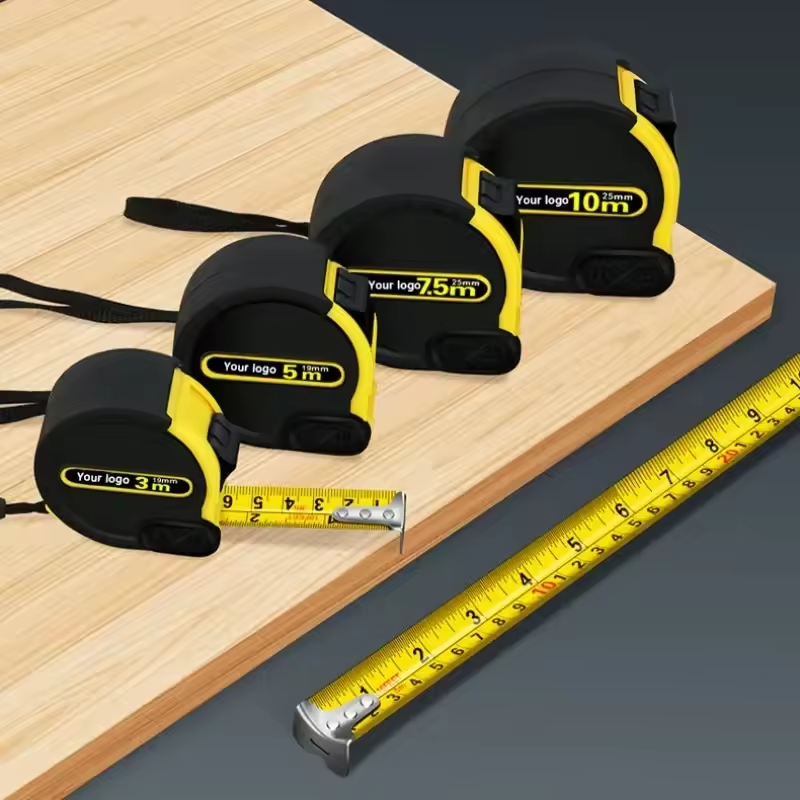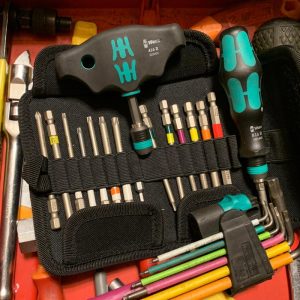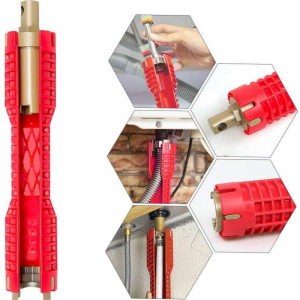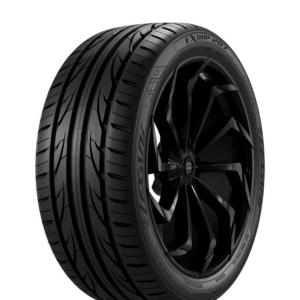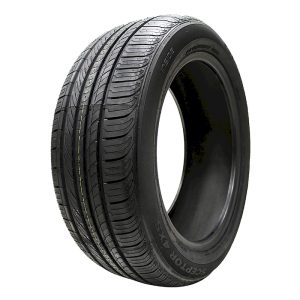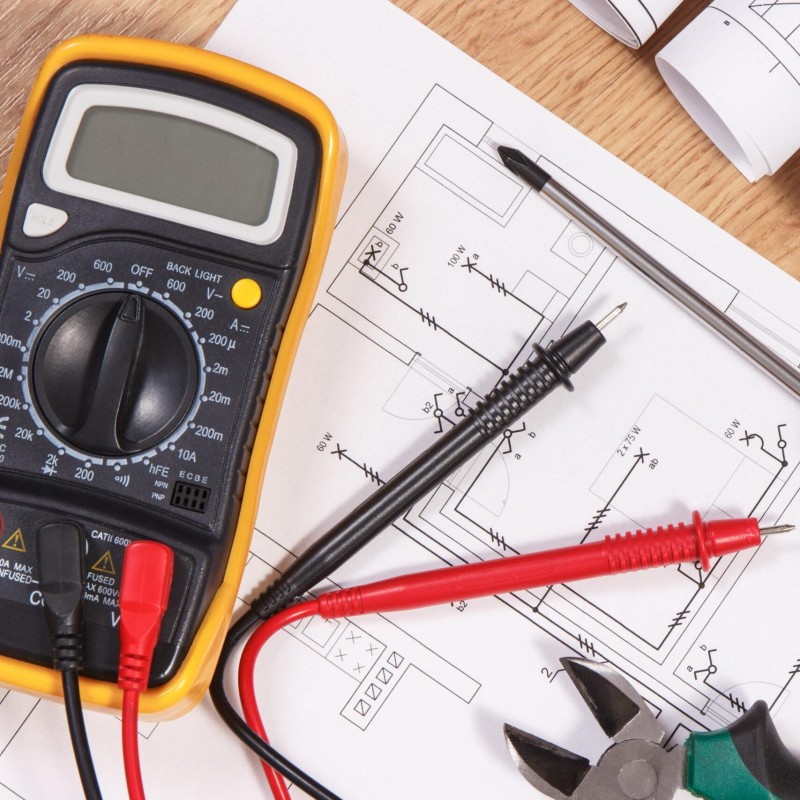
Electrical tools (Japanese: 電気工具) are essential instruments that facilitate various tasks, from simple household repairs to complex electrical systems. Whether you’re a seasoned professional or a DIY enthusiast, understanding these tools and their proper usage can greatly enhance your efficiency and safety when conducting electrical work. The right tools not only make the job easier but also ensure that you achieve high-quality results. In this comprehensive guide, we will explore the different types of electrical tools, their benefits, essential maintenance tips, and best practices for use. We’ll also look at what every toolbox should contain and delve into the world of various enthusiasts seeking to broaden their skill set. By the end of this article, you’ll have a well-rounded understanding of electrical tools that will empower you in your future projects.
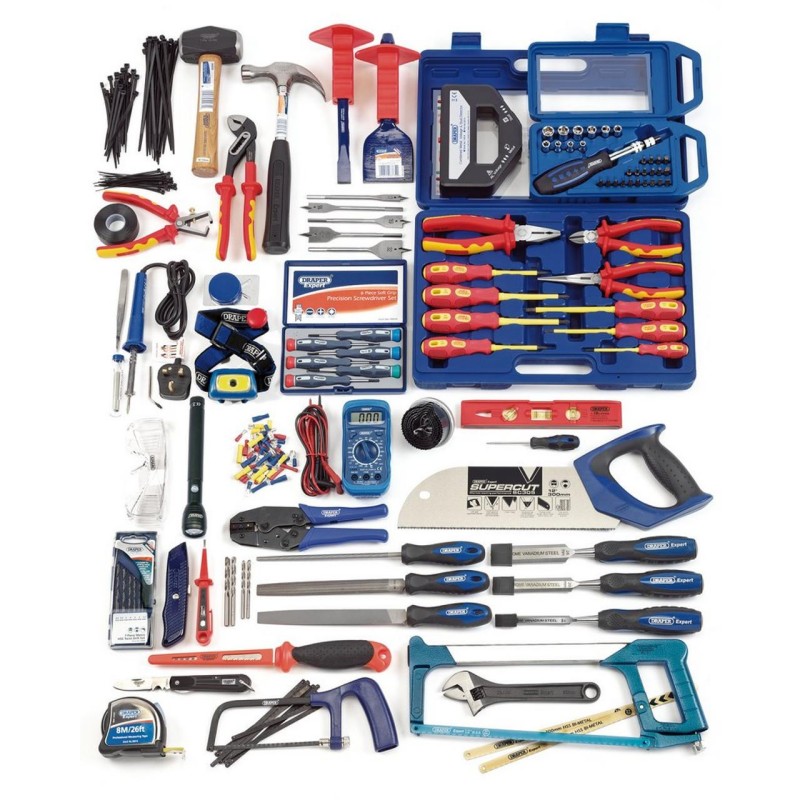
The Importance of Quality Electrical Tools
When it comes to electrical work, quality is one of the most significant factors to consider. Using reliable tools not only ensures safety but also improves performance. Poor-quality tools can lead to mistakes that might cause damage or even injuries. Therefore, acknowledging the importance of investing in high-quality electrical tools is vital for both professionals and DIY enthusiasts.
Quality tools often come with a longer lifespan, which means you will not have to replace them frequently. In the long run, this saves money and time. Furthermore, having the right tools at your disposal can make a substantial difference in maintaining an organized tool box. Quality tools fit properly into storage spaces and reduce clutter, making it easier to find what you need when you need it.
Moreover, using top-grade electrical tools can enhance the precision of your work. Whether you’re installing outlets, wiring a circuit, or troubleshooting a malfunction, having the best tools for the job will help you achieve accuracy, reducing the likelihood of errors. In short, investing in quality electrical tools is a wise decision that pays off in safety, efficiency, and effectiveness.
Essential Types of Electrical Tools
Understanding the various types of electrical tools is crucial for both safety and effectiveness. There are several categories of tools, each designed for specific tasks. Below are some of the essential types of electrical tools that every electrician or DIY enthusiast should have in their toolbox.
Hand Tools
Hand tools are fundamental for performing various electrical tasks. This category includes screwdrivers, pliers, wire cutters, and wrenches. Each of these tools plays a vital role in tasks such as tightening screws, cutting wires, and manipulating electrical components.
For instance, a set of insulated screwdrivers is essential for safely working with live circuits. Insulation prevents accidental shocks, making your work environment safer. Pliers, on the other hand, can be used for gripping, twisting, and cutting wires, providing flexibility in handling different materials.
Power Tools
Power tools are indispensable for larger-scale electrical projects. These tools can significantly reduce manual effort and time spent on tasks. Common power tools in electrical work include drills, saws, and impact wrenches.
Electric drills are particularly useful for tasks like creating holes for fixtures or wiring installations. When selecting a drill, consider the voltage and battery life. A higher voltage ensures a more powerful tool, but balance this with battery efficiency for optimal performance.
Testing Instruments
Testing instruments are essential for ensuring safety and functionality. These tools help troubleshoot issues and verify circuit integrity. Common testing instruments include multimeters, oscilloscopes, and voltage testers.
A multimeter is a versatile tool that measures voltage, current, and resistance. It can help identify shorts or breaks in the circuit, making it an invaluable tool for any electrician. Voltage testers, as their name suggests, check for the presence of voltage in a circuit, which is crucial for ensuring that a circuit is safe to work on.
Cable and Wire Tools
Cable and wire tools focus on handling various types of electrical wiring. This category includes wire strippers, crimpers, and cable cutters. Each tool serves a specific purpose, making tasks like wiring terminations easier and more efficient.
Wire strippers, for instance, allow users to remove insulation from cables without damaging the wire itself. This precision is vital for creating clean connections. Crimpers are essential for attaching connectors to wires securely, ensuring that your connections remain intact during operation.
Safety Gear
Safety gear is a crucial aspect of electrical work. Whether you’re a seasoned professional or a hobbyist, you can’t overlook the importance of protecting yourself while using electrical tools. Common safety gear includes gloves, goggles, and hard hats.
Insulated gloves are essential for preventing electric shock. Moreover, safety goggles protect your eyes from flying debris during cutting or drilling activities. By investing in proper safety gear and ensuring its availability in your toolbox, you can reduce the risk of injury significantly.
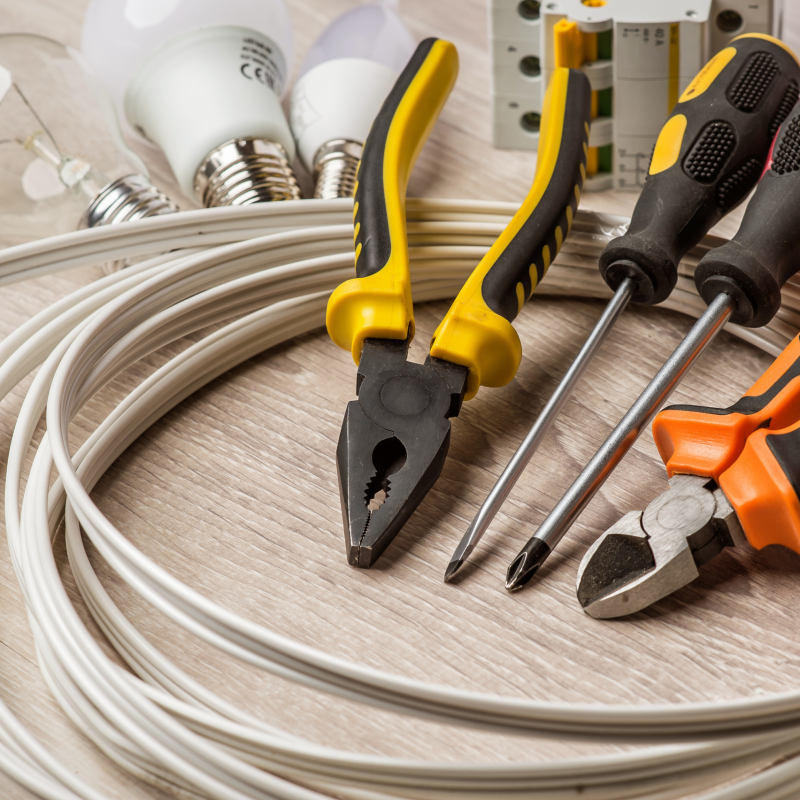
Specialty Tools
Specialty tools cater to specific projects or tasks, often catering to electrician requirements. Examples include voltage detectors and electrical scopes. These tools make specialized tasks more manageable but are not as commonly found in a standard toolbox.
Having at least one specialty tool can save you considerable time and effort on specific projects. For instance, a voltage detector can quickly inform you about live wires, allowing you to work more safely.
Maintenance of Electrical Tools
Proper maintenance is essential for extending the lifespan and effectiveness of your electrical tools. Regular care can prevent damage and ensure that your tools are always ready for use. Here are some helpful tips for maintaining your electrical tools effectively.
Cleaning Tools
Keeping your tools clean helps prevent the buildup of dirt and grime. After every use, take a moment to clean your tools with a soft cloth or a brush. Pay special attention to any moving parts, as debris can hinder function.
For hand tools, a mild detergent and warm water can remove stubborn dirt. Avoid using harsh chemicals that could damage the tool’s material. Power tools often come with specific cleaning instructions; always refer to the manufacturer’s recommendations.
Inspecting Tools
Regular inspections help in identifying any wear and tear before they become serious issues. Make it a habit to check your tools after each use, looking for signs of damage, rust, or malfunction.
Particular attention should be given to electrical connections and insulation on tools. If anything appears damaged, make necessary repairs or replace the tool to maintain safety standards.
Lubricating Moving Parts
Lubrication is crucial for any tool with moving parts. A well-lubricated tool operates more efficiently and lasts longer. Apply the appropriate lubricant to joints, gears, and other moving components as recommended by the manufacturer.
Remember that excessive lubricant can also be harmful. Always follow guidelines to ensure you’re using the right amount for optimal performance.
Proper Storage
Storage plays a pivotal role in maintaining your tools. Ensure that your toolbox is organized to prevent tools from colliding, which can lead to scratches and damage. Additionally, using padded compartments can safeguard your tools further.
Store power tools and large items in a dry, safe area to prevent rust and degradation. By maintaining a clean and organized toolbox, you can quickly locate the electrical tools you need while protecting them from damage.
Using Tools Correctly
Proper usage can considerably extend the lifespan of your electrical tools. Familiarize yourself with the instructions provided by the manufacturer and always adhere to recommended uses.
Avoid overloading tools beyond their specified capacities, which can cause damage or catastrophic failures. If you’re unsure how to use any tool, don’t hesitate to consult guides or instructional videos to ensure proper handling.
Regular Calibration and Testing
For tools that require calibration, ensure that you perform this task regularly. Some testing instruments, such as multimeters and oscilloscopes, require periodic calibrations to ensure accuracy.
Regular testing also guarantees that the tools remain within safe operating conditions. If any tool is not functioning as it should, replace it or have it repaired immediately.
Tips for Using Electrical Tools Safely
Safety is paramount when working with electrical tools. Whether you’re working on a small DIY project or conducting extensive electrical installations, following safety best practices can mitigate risks and enhance your overall work efficiency. Below are essential tips to keep in mind when using electrical tools.
Always Wear Protective Gear
This cannot be overstated. Proper protective gear, which includes insulated gloves, goggles, and hard hats, should be worn at all times. These safeguards can significantly reduce the risk of injury from electric shocks or flying debris.

Inspect Tools Before Use
Before using any tool, conduct a thorough inspection. Check for frayed wires, chipped insulation, or other signs of damage. If you spot any issues, do not use the tool until it is repaired or replaced.
Keep Work Area Clear
A cluttered work area can lead to accidents. Make sure your workspace is organized and free of unnecessary items. This will not only ensure your safety but will also help you focus better on the task at hand.
Follow Electrical Codes
When working with electrical systems, it’s crucial to follow local electrical codes and regulations. This ensures that your work meets safety standards and reduces the risk of electrical hazards.
Use Tools Designed for Specific Tasks
Using the right tools for the job makes a substantial difference. Do not attempt to improvise or use tools not designed for specific electrical tasks, as this can lead to accidents and poor results.
Keep Your Toolbox Organized
An organized toolbox allows you to find the tools you need quickly. It also helps reduce the chance of using the wrong tool for a task. Consider labeling compartments or drawers in your toolbox for easy identification.
Benefits of Using Electrical Tools
Embracing electrical tools offers numerous advantages, making them indispensable for both professionals and DIY enthusiasts. These benefits range from efficiency and precision to improved safety and cost-effectiveness. Below, we will explore some of the most significant benefits of using electrical tools in various projects.
Enhanced Efficiency
The primary benefit of using quality electrical tools is enhanced efficiency. With the right tools, tasks that took hours to complete can often be finished in a fraction of the time. This efficiency allows you to take on more projects or dedicate time to other important activities.
For electricians, efficiency directly translates into increased productivity, which can lead to higher profits. For DIY enthusiasts, being able to complete projects more quickly means more time spent enjoying the results.
Improved Precision
Electrical tools are designed to operate with high levels of precision. When using the appropriate tools, you can ensure accurate measurements and connections, which are crucial in electrical work.
This improved precision reduces the likelihood of errors that could compromise safety or functionality. For instance, precise cuts and connections lead to better finishes and increased durability in installations.
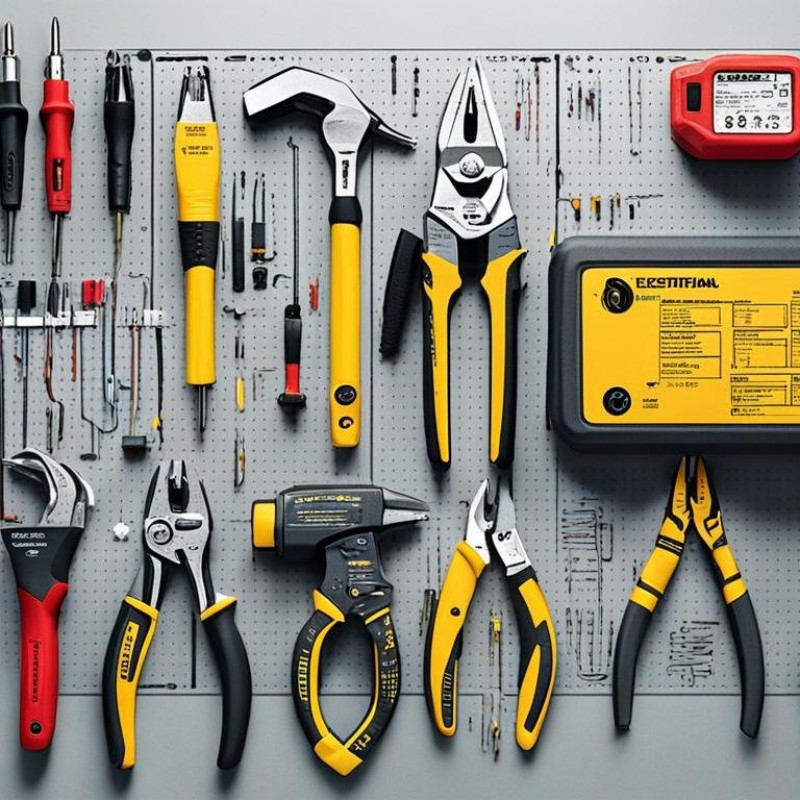
Increased Safety
Safety is a top priority when performing electrical work. Utilizing quality electrical tools minimizes the risk of accidents and injuries. Insulated tools protect users from electric shock, while safety gear ensures further protection from common hazards.
By prioritizing safety in the selection and usage of electrical tools, you create a more secure work environment. This not only protects you but also safeguards others around you from potential harm.
Versatility for a Range of Projects
Electrical tools are incredibly versatile, making them suitable for various tasks and projects. Whether you’re dealing with home improvement, automotive work, or industrial applications, there’s likely an electrical tool tailored for your needs.
This versatility is particularly beneficial for DIY enthusiasts who want to explore different projects. Instead of being limited to specific tasks, you can expand your skill set and tackle a broad array of electrical challenges.
Long-Term Savings
While investing in quality electrical tools may appear costly upfront, in the long run, it can save you money. Durable tools last longer, require fewer replacements, and can reduce the need for costly repairs.
Additionally, with increased efficiency and precision, you’ll be less likely to make costly mistakes that necessitate corrections. Thus, the initial investment can quickly pay off in both time and financial savings.
Access to Knowledge and Community
Using electrical tools also connects you to a community of enthusiasts and professionals. Engaging with fellow users can provide valuable tips, advice, and shared experiences that enhance your skills and knowledge.
Numerous online forums, social media groups, and local workshops focus on electrical work. Being part of these communities allows you to expand your understanding of electrical tools, trends, and best practices.
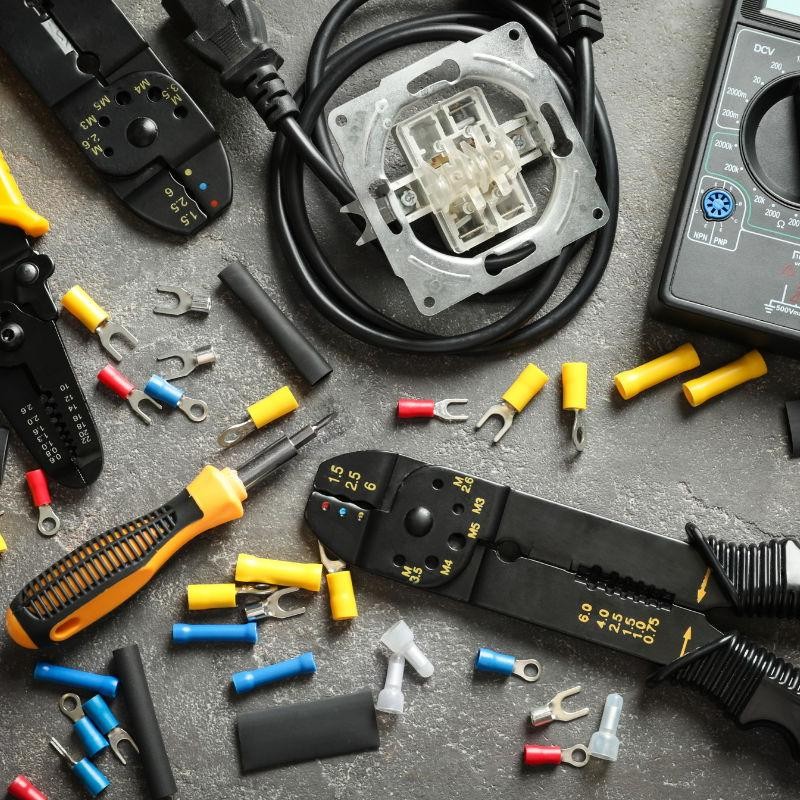
Conclusion
In conclusion, electrical tools are essential for anyone involved in electrical work, whether professionally or as a hobbyist. From hand tools and power tools to testing instruments and safety gear, understanding the various types of electrical tools available ensures you’re well-equipped to tackle projects with confidence. The significance of quality tools cannot be overstated; they enhance efficiency, improve safety, and provide precise results.
Proper maintenance and usage of electrical tools are equally important. Regular inspections, cleaning, and organizing your toolbox will prolong the life of your tools and ensure that they’re always ready for action. When using electrical tools, prioritizing safety is crucial, and adhering to best practices reduces the risk of accidents.
Ultimately, mastering electrical tools opens doors to countless projects and opportunities for both learning and creativity. The benefits—ranging from increased efficiency to long-term savings—make investing in quality electrical tools a wise decision. By committing to ongoing learning and exploration, you can transform any project into a rewarding adventure, empowering you to create, repair, and innovate with confidence.
